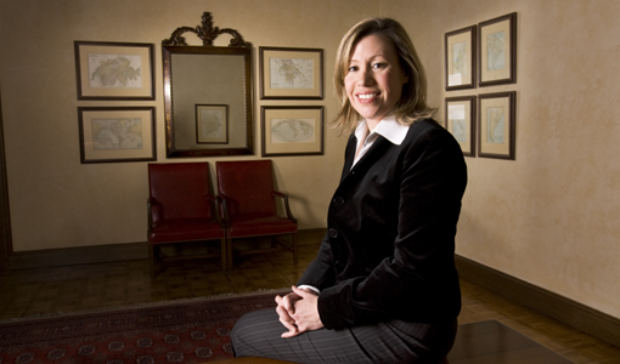As vice president of corporate communications for Northwest Airlines, you’ve been busy lately.*The pace is always frenetic in this business.
How would a Northwest merger change the flying experience for Minnesotans?I can’t comment on speculation, but the Minneapolis- St. Paul airport is a vibrant, well-operated hub. It is one of Northwest’s most valuable assets, and we believe it would be considered a prized hub by others as well.
This is not the first time you have worked at an airline during a restructuring and/or merger. How does this differ from your time at Sun Country and US Airways? Sun Country and US Airways were both Chapter 11 restructurings. It’s a very different environment when you are at a company that is fighting for its survival every day. There’s a sense of teamwork and camaraderie that exists in that environment – because it is publicly known that you are on the brink of liquidation.
Merger talks are inherently different. You can’t talk publicly about a potential deal, so you can’t rally public support. Yet you may be fending off public opposition. The rules of engagement are just very different.
What is the greatest challenge about working in such an unpredictable work environment?The airline industry always has been, and will be, a very cyclical and unpredictable business. The challenge is that there are so many factors beyond your control that constantly threaten your existence: terrorism threats, SARS, avian flu, fuel costs, economic downturns. You have to be prepared for whatever is thrown at you every day.
So, what’s the payoff?There is never a dull moment. Each day is filled with mental gymnastics because you never know what you’re going to be hit with next. You get to work in a business that is so complex, with so many moving parts – one that is a critical part of our global economy. It is the adrenaline junkie’s dream job.
What does the future hold for the airline industry?Consolidation is inevitable – it’s not if, but when, it will happen. When it does, I think that will be good for the long-term health of the industry. This is an industry that is in constant turmoil. In the case of airline consolidation, the right combination of carriers would be “less equals more” – meaning, a more stable, competitive landscape that is better able to compete with foreign carriers.
In 2006, you ran as the Independence Party candidate in Minnesota’s 5th Congressional District. At your kickoff, you said that “business and labor can work together for the good of everyone.” The “us vs. them” mentality between labor and management is, unfortunately, ingrained in the DNA of many companies – and it doesn’t need to be. At the end of the day, businesses need a talented workforce to be profitable – and workers need vibrant, profitable companies to support their families. It needs to be a healthy give-and-take.
How did your experience at Sun Country and US Airways prepare you for your run?Working at Sun Country was a really fun, rewarding, underdog fight. Similarly, US Airways was the smallest of the major carriers, so that was a bit of an underdog fight as well. Running as an Independent is akin to that. You get to play the role of the scrappy underdog – and that’s a story that is appealing to many people. I ran for Congress as the long shot with a moderate-to-populist platform, so my prior experiences were great training for that.
Why back the underdog when it’s easier to be the favorite?When you’re the favorite it’s easier to raise money, which is the mother’s milk of politics. But on the upside, the underdog isn’t constrained by traditional party patronage requirements or litmus tests. You get to carve out your own space – take the positions you truly believe in – and take a more creative approach to your campaign.
What is the future of third-party politics in our country? It’s hard to say. I think at some point the radical moderates will rise up and take back one of the other two parties. If that’s the case, the public interest is still served. Third parties often arise out of an intense desire for change and a rejection of politics as usual.
Why do people pick on the government and the airline industry? They are both high-profile, easy targets. The airline industry is incredibly complex with lots of moving parts. Government is a sum of many disparate parts. In both cases, you’re dealing with industries that everybody loves to hate.
So, why work in these fields? I love the challenge and the adrenaline rush. It is a thrill to work in a complex field where thousands of people count on you or your company to get it right.
Who inspires you in the government today? I think we are in desperate need of a new political hero or heroine. The Eleanor Roosevelts, Indira Ghandis and Benazir Bhuttos of the world have ceased. The Margaret Thatchers and Madeleine Albrights have faded from public power. Joan Growe, former Minnesota secretary of state, has always been a role model for me because she was a trailblazer for women in politics – same with Coya Knutson, the first Minnesota woman to go to Congress. We are in need of new trailblazers and dream-makers.
Do you want to announce any plans to run for elected office again?Not at this time. For now, I’m very busy and very happy at Northwest Airlines. What the future holds … who knows?
* Editor’s note: Northwest Airlines was in merger talks with Delta Air Lines when this edition of B. went to press.





